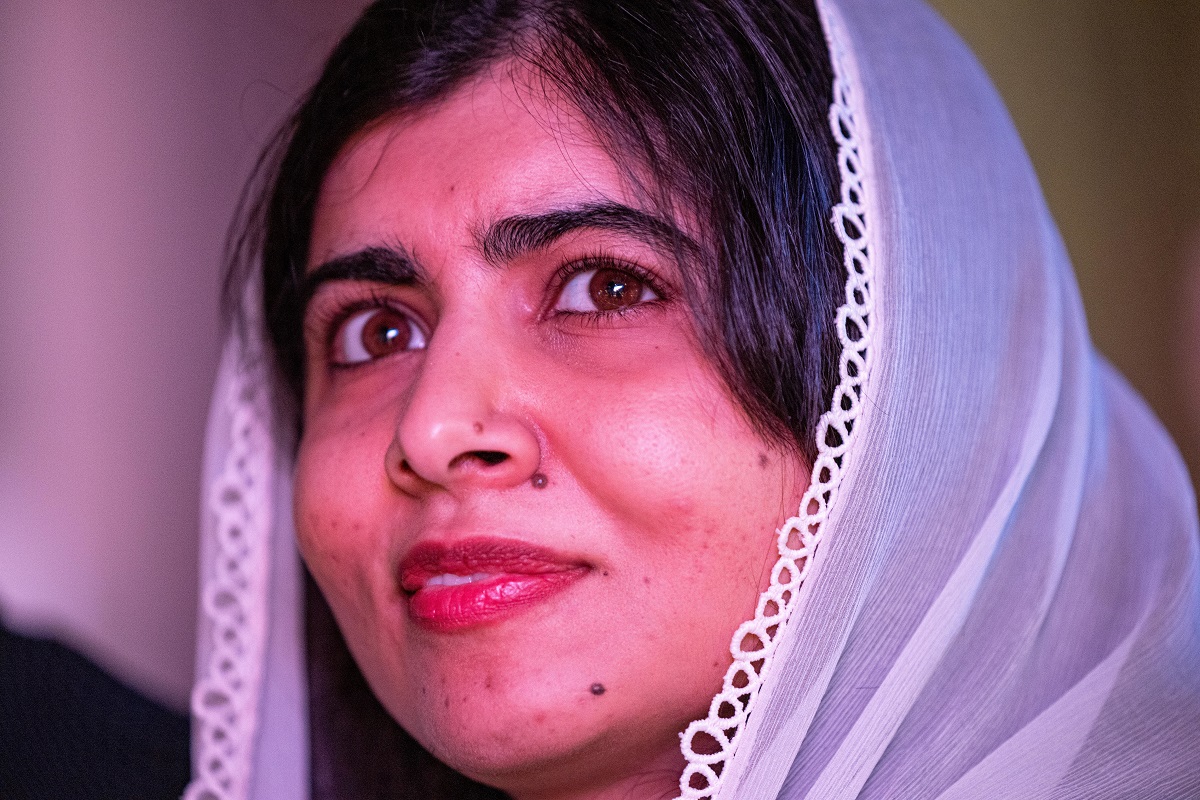Pakistani activist for female education Malala Yousafzai visited Expo 2020 Dubai where she underscored that not only must girls believe in their voices, but that the world needs to really listen.
Malala Yousafzai, aged 17 at the time, she was the youngest-ever Nobel Prize laureate. In 2015, she was the subject of the Oscar-shortlisted documentary He Named Me Malala. The 2013, 2014 and 2015 issues of Time magazine featured her as one of the most influential people globally.
In 2017 she was awarded honorary Canadian citizenship and became the youngest person to address the House of Commons of Canada.,
Yousafzai went on to say: “There are still more than 127 million girls who are deprived of education. My mission remains the same - for these girls to have access to safe, free quality and complete education. I believe in the voice of girls. I want us to listen to the voices of girls and young women around the world – not to just sit here and share stories, but to participate in these conversations with them. These women also need to be in the rooms where decisions are being made about their future so they can actively participate.”
Highlighting that when every girl is ensured access to education it would add 30 trillion dollars to the world economy, the 24-year-old said: “If you want to see change, you have to believe in it. I still have an ambition that one day there will be zero girls out of school.”
Speaking at the Women’s Pavilion, Yousafzai said that from the moment she entered the building, the message was clear that in order for humanity to thrive, women have to thrive too. “I learnt a lot on my tour about the role of women in different areas, from agriculture to financing, space, education and leadership. There’s so much optimism and enthusiasm for the future when we educate and empower women, and, at the same time, there’s a reminder that millions of women do not have access to equal rights. They face domestic violence and harassment. These are the issues we must address. We all know it’s possible to solve these problems, and we can make that happen.”
Ahead of International Women’s Day on 8 March, Yousafzai urged people to look at the world in which we are living. “We cannot deny the reality of people being discriminated against because of their gender. If you look at Afghanistan, where girls in secondary schools are denied their right to education, we should not be living in this world. On International Women's Day, I hope we continue emphasising this message; through repeated activism and advocacy, we have seen huge progress,” she said.
Describing herself as lucky to have been able to study philosophy, politics and economics at Oxford University – “those three years were a remarkable part of my life, and I will always remember and treasure those moments” – the global ambassador for female education pointed out that there was still a huge gap in access to science, technology, engineering, and mathematics (STEM) education. “Women are taught it’s not for them, but that stereotype has been challenged, and we are seeing women thriving in this field. Today more females are interested in space and science; they want to talk about climate change and how to tackle these issues.”
Her hope for International Day of Women and Girls in Science on 11 February is for all obstacles to be abolished so that girls imagining themselves in the world of STEM can effortlessly embark on their journeys.
Earlier in the day, Yousafzai enjoyed a tour of the Pakistan Pavilion which, she described as “both beautiful on the outside as well as the inside,” marvelling at the visuals and artwork that show diversity in terms of the country’s cultures and faiths. “I also loved the amazing Pakistani food, which I have been missing. It was an amazing time with family and I hope that more people will visit it and enjoy it as much.”
Hailing Expo 2020 Dubai and its leadership as an example for youth, Yousafzai said: “When young girls visit the pavilions, they are learning something and can pictures themselves in leadership roles. This is the message we send to our future generation: girls and boys can do anything, and gender should not be preventing them from any role they aspire to.”
By Delroy Constantine-Simms and Maureen Drackett-Fuller











